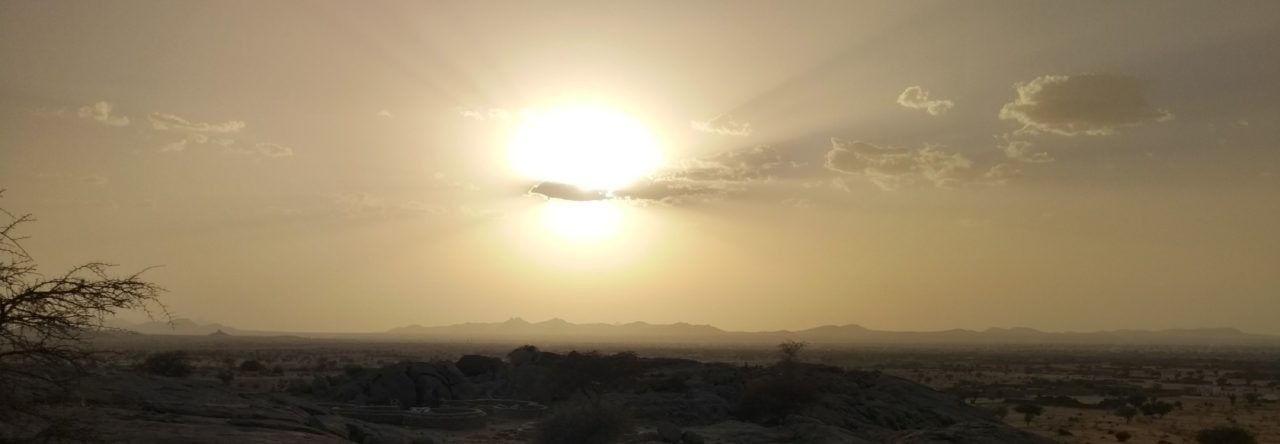We have just finished the 3rd round of eye clinics out in the village and we appreciate all the prayers that were lifted up on our behalf. Dr. Brian and the team arrived February 17th after an unplanned night in Paris due to dust storms in N’Djamena. The week of their arrival, the government office that issues travel permits decided to go on strike, so our entire plan was thrown into uncertainty. We prayerfully moved forward with the plan, trusting that God would make a way for them to come out (and putting together Plan B in case he chose not to). We had planned to have them taken care of by the staff of a guest house in N’Djamena and then Josh would meet them in Abeche when they arrived by plane, but due to the uncertainty of travel permits Josh and the boys took a last minute trip to N’Djamena to welcome them and see what could be done to push the permits along. Our last chance to fly out east (and thus actually have a chance to do the clinics before they had to return to the US) was Friday, February 19th. Thursday afternoon came and went and still not permits. We decided to go anyway, and our church partners wrote us a letter explaining what we were doing and that we travelled with their blessing.
So Friday morning we set out, not flying to Abeche but to another town near the Sudanese border that was closer to the village where we would do the clinics. We rearranged our plans at the last minute, deciding to go directly to the village before passing through Abeche on our way out to provide some eye care to Chadian pastors and missionaries who had gathered there for a conference. We arrived Friday afternoon at the dirt airstrip, and after doing one flyover to check the airstrip for obstacles and a second last-minute aborted landing due to a couple of military guys who decided it was a good time to fly down the airstrip towards us on their motorcycle for no apparent reason, we landed without incident. Abdoulaye was there with our car waiting for us, having travelled from Abeche that morning. We hopped in the car and made the 1.5 hour drive to the village.
The clinics were a great success, and we were able to see about 300 people. Kimberly, Josh and one of our teammates translated for the doctor. The hot sun, wind and dust of the Sahel is a recipe for eye trouble, and as always there was plenty of work for Dr. Brian. Cataracts (we referred people to a clinic in Abeche where they do surgery), glaucoma (we had eye drops that if taken regularly can slow its progress), trauma (how many people did we see who had been poked with a thorn in the eye, or hit with a piece of wood, rock, etc.), severely dry eyes and regular old eyeglass prescriptions were just some of the problems we saw.
We are thankful for these clinics, both because they are a chance to relieve a bit of suffering for those who come, but also because they are a door into their lives, families and villages. Everywhere I go in the east I meet people who have been to, or at least heard about the clinics. “When is the doctor coming again?” is a regular question I hear at the local markets I visit.
Would you join us in thanking God for these clinics, and praying that they may be a door for the gospel to enter into this dark place?













































